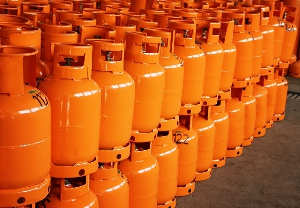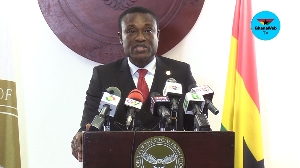Business News of Tuesday, 30 April 2024
Source: classfmonline.com
NPA vows to ease LPG traders' financial burdens amid industry turbulence
In response to mounting concerns raised by the LPG Marketers Association, the National Petroleum Authority (NPA) has pledged unwavering support to alleviate operational expenses for Liquefied Petroleum Gas (LPG) traders.
The contentious issue at hand revolves around the proposed imposition of an $80 per metric ton (MT) fee on suppliers' premiums, aimed at bolstering investments in bottling plants and cylinder margins.
The Head of Economic Regulation at the NPA, Abass Ibrahim Tasunti, reiterated the authority's proactive approach to addressing industry challenges to safeguard sustained viability.
Mr. Tasunti outlined the NPA's comprehensive strategy, blending regulatory directives with innovative measures to alleviate financial burden on stakeholders.
“While taxes are indispensable for government revenue, we recognize the imperative of striking a delicate balance. In light of this, we have advocated for a reevaluation of the tax burden on LPG,” stated Mr. Tasunti.
He further elaborated on collaborative initiatives between the NPA and bulk distribution companies (BDCs) to streamline importation processes and reduce associated costs.
“Our dialogue with BDCs has paved the way for exploring alternative procurement avenues. Through consolidating quantities and conducting transparent competitive tenders, we have successfully negotiated premiums, significantly trimming costs. The introduction of the $80 per metric ton levy complements this endeavor, fostering a more sustainable pricing framework,” Mr. Tasunti explained.
The NPA's proactive interventions have yielded tangible outcomes, as evidenced by a remarkable reduction in premiums from $100 to $30 per metric ton.
Mr. Tasunti underscored the positive ripple effect of this initiative on the overall LPG importation cost structure, highlighting its pivotal role in adapting to pricing fluctuations.











